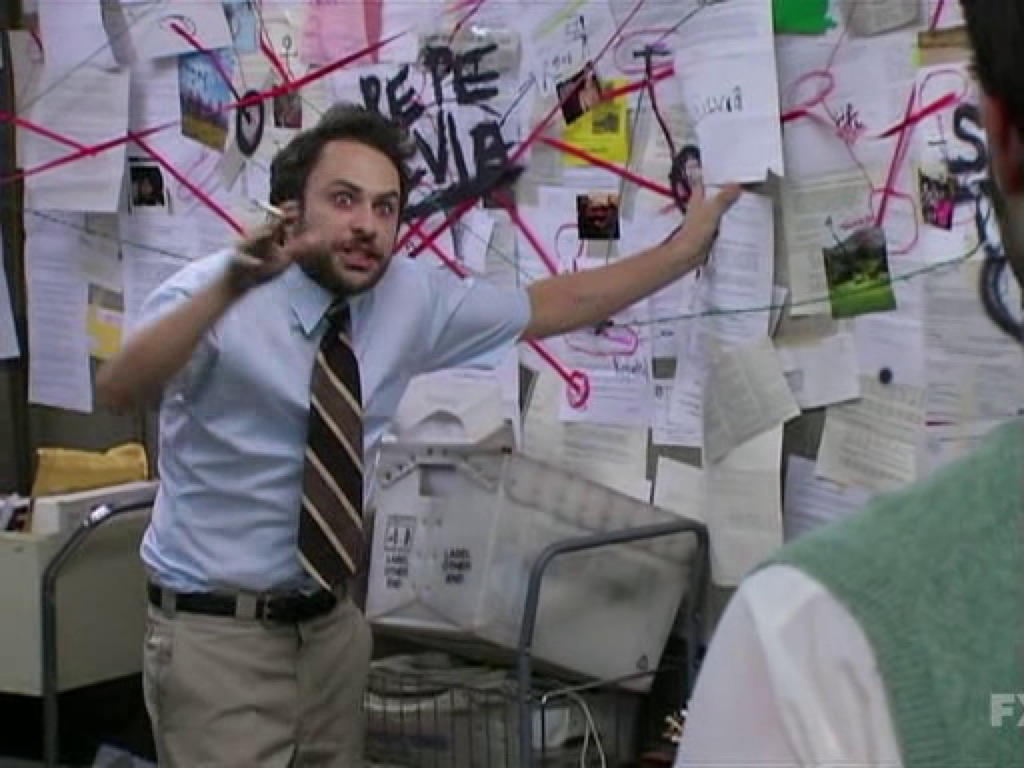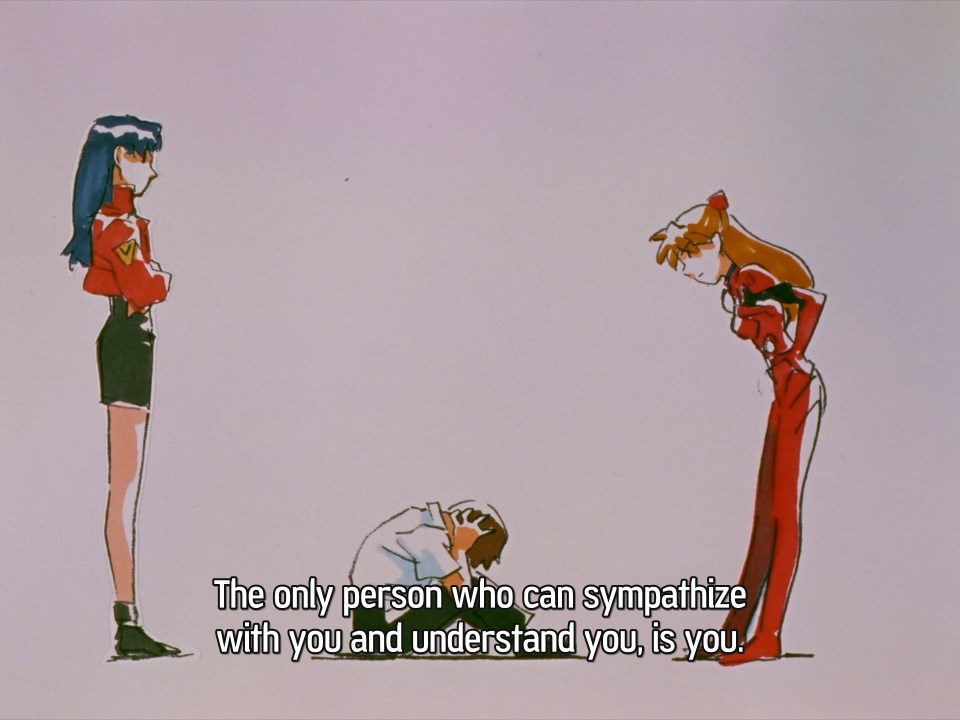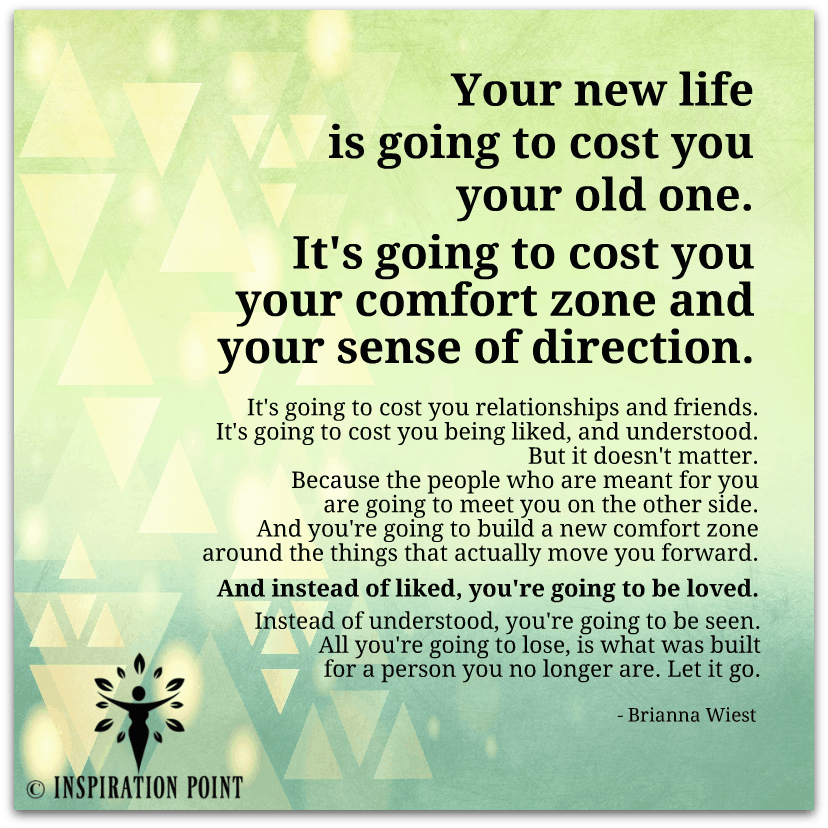It’s that time again when we look back at what we’ve accomplished over the last 12 months and look ahead to how we want to stretch ourselves and grow over the year ahead. Left unchecked, I have a tendency to go overboard with my resolutions until I’ve created something more like a comprehensive self-improvement overhaul. Jokes about my Myers-Briggs type confirm this tendency…
ENFP
“I resolve to make less than thirty new years resolutions this year, and keep at least two of them.”
Outcome: Stays up for fourteen straight days in an attempt to complete first resolution and subsequently ends up creating fifteen more.[1]
Setting an Intention
New Year’s resolutions – for me anyway – really need to go beyond things like flossing every day and working out three times a week. Most years I go the route of identifying basic “shoulds” to incorporate into my daily routine, but in years when I’ve been a little more strategic and mindful about my resolutions, I’ve had better outcomes. For example, the most life-changing intention I have ever set for myself was five years ago when I attended New Year’s Day services at a Hindu temple near my apartment. While I was there, I prayed to the Earth goddess for the open-mindedness to recognize opportunities that crossed my path that would allow me to make an impact in helping the planet.
By March I was meeting for informational interviews about municipal-level renewable energy generation and energy efficiency programs. By May I had an unofficial job offer to design and manage a neighborhood-based grassroots education program that would teach community members about simple do-it-yourself projects and behavior change tips that help to save energy and make indoor environments healthier. By July I was officially part of the team.
Two years later that pilot project was so successful that I was getting grant funding for several subsequent rounds. The data my team gathered related to energy savings and health outcomes were so comprehensive that I have since been invited to speak about our findings at several conferences and webinars. That initial neighborhood engagement also laid the groundwork for a whitepaper that incorporated our program data with research on local, state, and federal healthy homes policies to create a set of recommendations for Allegheny County, which is now at the core of my organization’s advocacy agenda.
I have truly loved my job, my team, and the excitement of creating something new that has already positively impacted hundreds of homes in Pittsburgh. However, through some difficult conversations with my boss, therapist, family, and friends over the past two months, I recognize that it is time to be looking at my next career move.
The concept of moving on scares me a little because I will be stepping from comfort (and complacency) into unknown challenges. It has been five years since I’ve really looked at career options; nine years since I’ve had a formal job interview. I am still comfortably employed at the moment, which means I’m not in panic mode, but my boss and coworkers know I’m looking for my next opportunity, which means I’d rather not spend more time than necessary with my attention divided.

Image credit: [2]
Creating a Path
Knowing that it was time to make a move, I started to brainstorm. I covered one wall in our guest room with easel paper so I could create lists about myself, specifically…
- Attributes: positive attitude, cooperative, invested in what I do, etc.
- Skills: building systems, research and writing, synthesizing information, etc.
- Knowledge Base: energy efficiency, organizational behavior, building science, etc.
- Areas of Interest: environmental justice, healing and recovery, advocating for others, etc.
- Workplace Must-Haves: supportive team environment, flexibility in work hours, opportunities to grow my skills and step outside my comfort zone, etc.
The goal was to make something akin to a conspiracy theory board, with articles, job postings, resources, and recommendations, all connected with a web of red yarn. I haven’t yet moved past my initial neat, color-coded columns mentioned above, but even while it is in progress, this brain-dump of information has helped me begin to visualize what I want and where I want to be.
I don’t work well in a vacuum, so in addition to my brainstorming, I wanted a formal opportunity to discuss this change in the open. Most people use friends and family as a sounding boards, but I do it a little more shamelessly than most. Three years ago when I was contemplating the idea of marriage, I picked Committed: A Skeptic Makes Peace with Marriage, by Elizabeth Gilbert[3] for book club when it was my turn to host so I could workshop the concept with my friends. This past Memorial Day, I peppered my friends with constant questions every day of our camping trip[4] to assess the legitimacy of Florence Williams’ concept of The Three-Day Effect[5] as it relates to mental rest and trauma recovery.
Now to work my way through this career transition, I once again turned to my book club and selected The Courage to be Disliked, by Ichiro Kishimi and Fumitake Koga.[6] This book had popped up as a recommended title on Audible, and it seemed like a timely suggestion. The content is based on the principles of Adlerian psychology[7] and is presented as a dialogue between an older philosopher and a younger student. Alfred Adler was a contemporary of Freud, but the book explains that fewer people recognize his name because his theories have been incorporated into our daily lives to such an extent that they have ceased to be a separate philosophy.
The messages in the book are important for anyone to hear at any time, but I found them to be particularly meaningful to me now. The top five high-level ideas I took from the book are as follows:
- Your past experiences, while they may be influential in who you are today, do not dictate your future or your path in life. You have the power to determine your own path.
- Everyone is responsible for certain life tasks. You need to understand which tasks are your responsibility and which are others’, and then let go of the tasks that are not yours.
- Horizontal relationships (those on equal footing) are the goal when dealing with others. Vertical (hierarchical) relationships can lead to dependence on external feedback and validation.
- Feelings of inferiority come from being surrounded by more experienced people. Just because you’re not as far down the path does not mean that you’re inferior.
- Value is intrinsic to all humans, not based on contributions to society and not assigned by others. Joy and meaning in life (not individual worth) come from contribution to society.
The impacts I felt and connections I made while reading resonated with different parts of my own life experiences and with different media I’ve encountered over the years. I found bits and pieces of everything from the virtuous cycle described in the management book Good to Great,[8] to the level of drive and self-reliance portrayed by the protagonists in the objectivist novel Atlas Shrugged,[9] to the concept of personal identity as a reflection of society, which is explicitly discussed in the finale of the Japanese anime series “Neon Genesis Evangelion.”[10] The frequent connections I made to these other works helped me realize just how prevalent some of these concepts are in our society and around the world.

Image credit: [11]
Pushing through the Rough Patches
Assessing my own value and abilities has always been difficult for me. In fact, Christian tells me I have the worst Impostor Syndrome[12] of anyone he has ever met. I have spent my life believing that talents and skills are innate, not learned (as do many women and graduates of gifted and talented programs). I’m usually pretty good at picking up the basics of a new skill quickly, but as soon as I hit a plateau, I get discouraged and believe I’m not cut out for it after all – rather than pushing through the difficulty and growing.
I have read that one of the best things you can do for Impostor Syndrome is to remove emotion from the equation and look objectively at the facts. As difficult as I find it to envision myself in a leadership role, I can cover up the top of my resume and see that this unnamed person has been working for years developing skills necessary to lead: an MBA, several leadership and management training programs, running operations at one company and a flagship program at another, etc. In short, I have had plenty of leadership experience over the years, if not the top job. I have to ask myself: what have I been working toward if not that?
At my last couple jobs, I have reported directly to the CEO or Executive Director, and I have become incredibly comfortable in a supporting role. I’ve never felt pressure being near the top because it was not my strategic vision we were following; I was merely figuring out the tactical steps of getting the organization to someone else’s goal. I recognize the comfort I feel when someone else is calling the shots. A good boss (like the one I have now) shields her team from the fallout of unpleasant situations. If I am in charge and make a mistake, that shield is gone (or rather, I am on the other side of it.) And it isn’t just that I have no one to blame but myself, it’s that others’ lives and livelihoods could be impacted. I have come to realize that my real fear around failure in a leadership role is the idea that I would be letting others down.
To be clear, I am not looking for a leadership role to prop up a deflated ego or to get validation from others. I am pushing myself along this path despite my inclination to stay small because I have spent my life wanting to achieve something meaningful for the sake of others, and it is likely that whatever that is doesn’t exist yet. If I am going to create a new path, I need to become confident in my own abilities, and the only way to gain that confidence is to put myself in that situation and be patient with myself, recognizing that skill-building takes time, and work, and failures.
I know I crave approval and acceptance on the most fundamental level of my being. I also know that doing something disruptive will draw attention – both positive and negative – and that I cannot waste energy being preoccupied with trying to please everyone. As Adler said, value as a human being is intrinsic; it is not assigned by others. Joy and meaning in life are derived from making a contribution to society. I will constantly need to remind myself that “contribution to society” can take many forms, and I am working on figuring out how I will do my piece.

Image credit: [13]
Looking Forward
In revisiting my resume, I was pleased to see that I didn’t have to adjust my personal mission statement from what I had crafted when leaving grad school nearly a decade ago. Specifically, I still intend to use my science and business backgrounds “to help organizations and individuals reduce their environmental impacts through more responsible resource use.” I have been doing exactly that for years, whether at my day job, through my graduate research, or through the passion project of this blog.
I recently called one of my best friends who is also going through a career transition. I told her about my fears of failure but also my desire to use my position of privilege to give back and leave the world a better place than I found it. Later on in the conversation, we were reminiscing about the time we spent living in Japan and how transformative that was. Without thinking, I blurted out “the most amazing things happen to you when you’re completely and utterly outside your comfort zone.” And there it was. I suppose I should start this new adventure by listening to that piece of advice.
As 2020 begins, I will once again be looking for ways I can make an impact, and I will be going in with eyes open knowing that meaningful change is not easy, but it is nonetheless important.
Thanks for reading – and Happy New Year!
[1] https://thoughtcatalog.com/heidi-priebe/2015/01/here-is-what-happens-when-each-myers-briggs-personality-type-makes-a-new-years-resolution/
[2] https://knowyourmeme.com/memes/pepe-silvia
[3] https://www.goodreads.com/book/show/6728738-committed
[4] https://radicalmoderate.online/the-three-day-effect-part-1/
[5] https://www.goodreads.com/book/show/41970691-the-3-day-effect
[6] https://www.goodreads.com/book/show/43306206-the-courage-to-be-disliked
[7] https://www.psychologytoday.com/us/therapy-types/adlerian-therapy
[8] https://www.goodreads.com/book/show/76865.Good_to_Great
[9] https://www.goodreads.com/book/show/662.Atlas_Shrugged
[10] https://en.wikipedia.org/wiki/Neon_Genesis_Evangelion
[11] https://www.i.reddit.com/r/anime/comments/67jtk4/spoilersrewatch_neon_genesis_evangelion_episode/
[12] https://www.psychologytoday.com/us/basics/imposter-syndrome
[13] https://www.thewellnessuniverse.com/world-changers/lorriebenjamin/images/
3 Comments
Charles Korey · December 29, 2019 at 3:22 pm
Dear Alison,
Changing jobs can be very scary. I put up with 13 years of mental abuse at my first job out of college until I could take no more. An opportunity came along and I had to make a quick decision (I had to have an answer in 1-2 days or it was no-go). After discussing it with Jean, thinking about it and praying (not necessarily in that order) , I took the job. I started at the bottom and the first year or two were scary. But it turned out to be the best career move I could ever have made.
Alison · January 2, 2020 at 11:56 am
Thank you Chuck. I’m glad you were able to work through the rough patches, find meaningful work, and make your way to retirement. I don’t think I’d be able to step back and reflect the way I have without the support networks I have in place, both professionally and personally.
Hindsight is 2020, Part 1 – Radical Moderate · December 27, 2020 at 12:59 pm
[…] [11] https://radicalmoderate.online/new-years-resolutions-and-the-courage-to-be-disliked/ […]